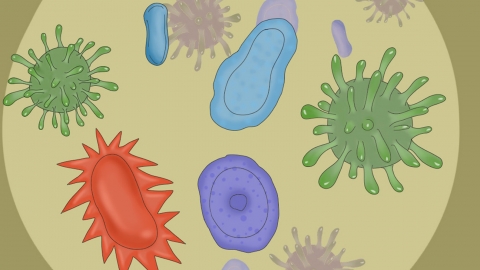Is infantile roseola contagious?
Infantile急疹, commonly refers to roseola infantum, which generally has certain contagiousness, though not highly contagious. It is mainly transmitted through respiratory droplets and is commonly seen among infants and young children after close contact. If concerned, it is recommended to seek medical consultation in advance. Detailed analysis is as follows:

Roseola infantum is caused by infection with human herpesvirus 6 or 7. During the initial high fever stage, the virus can be expelled from the body through droplets such as coughing and sneezing. If healthy infants and young children have close contact with the patient at this time, they may become infected by inhaling the virus, especially those aged 6 months to 2 years who have not previously been infected.
Once the fever subsides and the rash appears, viral replication in the patient's body has significantly decreased, and the contagiousness is greatly reduced. At this point, transmission generally no longer occurs. In addition, adults often show no obvious symptoms after infection but may become asymptomatic carriers, transmitting the virus to infants and young children through daily contact.
If there is a child with roseola infantum at home, it is important to maintain good indoor ventilation and avoid close contact between the infected child and other infants or young children. Hand hygiene and disinfection should be practiced after caring for the patient to reduce the risk of virus transmission. If healthy infants or young children develop fever symptoms, timely medical evaluation is necessary to avoid delaying treatment due to self-medication.









